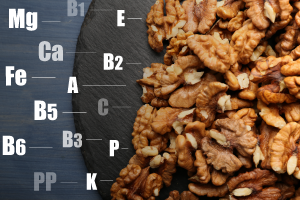

On November 14, people all across the world celebrate World Diabetes Day in order to increase understanding of diabetes as a public health concern and to communicate what must be done, both individually and collectively. This day is also observed to enhance the methods of prevention, diagnosis, and management of diabetes.
Because of the health issues it causes while it remains undiagnosed in many people, diabetes is known as a “silent killer.” Furthermore, it is the main factor in heart attacks, strokes, blindness, and kidney failure.
Types of Diabetes
There are two types of diabetes:
- Type 1
- Type 2
For type 1 diabetes, there is no known cause. What little is known indicates that the immune system attacks the pancreatic cells that are in charge of making insulin. The body has an insulin shortfall as a result and blood sugar levels begin to rise.
For type 2 diabetes, There are 2 different causes that are also interrelated:
- Cells become insulin resistant and are unable to utilise the necessary amount of sugar.
- Sugar levels increase as a result of the pancreas’ inability to produce enough insulin.
Every year, a new theme is launched to mark this day. The theme for World Diabetes Day 2022 is “Education to Protect Tomorrow”.
Therefore, in honour of World Diabetes Day 2022, we will educate you by answering the most asked questions about this disease.
Q&A on Diabetes
1. What should be the blood sugar level before a meal and after a meal?
The recommended range for blood glucose (or blood sugar) before meals or while fasting is 70 to 130 mg/dl. A postprandial blood sugar (after eating) reading at or under 180 mg/dl is considered to be healthy.
2. Does one have to start taking insulin if they are diagnosed with type 2 diabetes?
No, it depends on a number of factors, including when the diagnosis is made. According to research, if type 2 diabetes is treated early and blood sugar is controlled both initially and over time, the pancreas is more likely to produce enough insulin for a longer period.
A person with type 2 diabetes for more than 15 years, however, is unlikely to continue producing enough insulin, requiring the use of an insulin syringe, pen, or pump.
3. Can one get rid of type 2 diabetes if they stop eating carbs and/or lose a lot of weight?
No, but you can regulate it. Losing a lot of weight can put your type 2 diabetes in remission if you already have prediabetes or were just diagnosed. Type 2 diabetes can recur due to weight increase, ageing, and natural progression.
4. Is it OK for the diabetics to consume fruit when it’s full of carbohydrates?
All fruits, whether they are fresh, frozen, dried, or canned without added sugar, include mostly carbs and a small amount of protein in their calories.
For energy and other nutrients, people with diabetes must consume a particular amount of carbohydrates each day. Fruits, vegetables, whole grains, legumes (beans), and low-fat dairy products are all good sources of carbohydrates.
5. Does one have to take insulin for the rest of their life? Is medications not an option for them?
If you were prescribed insulin because you have type 2 diabetes, you probably need it to lower your blood sugar levels more than what medications could.
You’ll probably require insulin injections for the rest of your life in this situation. Your need for insulin, however, might only be temporary if you started taking it because you were hospitalised for a medical condition, needed surgery, or had an infection.
6. Will insulin make one gain weight?
To force glucose into cells for energy, insulin is required, either as a hormone produced by our bodies or as a medication.
Processing calories is insulin’s function. Because of this, weight gain can occur. To avoid putting on weight, practice portion control.
7. Is Drinking allowed for people with diabetes?
Yes, adults with diabetes can drink alcohol. They should abide by the same rules as the general public, which call for no more than three or four drinks per day and an average of up to one drink for women and up to two for men per day.
8. Does the Menstrual cycle and Menopause affect glucose levels?
Yes, the week before menstruation, women frequently experience hormonal changes that can affect glucose balance. Oestrogen decreases and progesterone increases following ovulation. These hormones affect the insulin metabolism and women may become more insulin-sensitive and develop hypoglycemia.
9. Can we reuse the lancet after cleaning it?
To avoid any potential infection, the CDC strongly advises against the use of lancets or other blood-testing equipment by more than one person at a time.
10. Can one get rid of diabetes?
Once you are identified as having type 1 or type 2 diabetes, you will always have it. Keep your blood pressure, cholesterol, and blood sugar under proper control to stay healthy. Eat well, exercise, and take your meds as directed to achieve this.
11. How frequently should a glucose metre be changed?
Your metre should only be replaced if its strips show that something is wrong with it. Use the control solution included with your metre to do the verification.
12. Is it true that complications of diabetes can be prevented?
Yes! According to research, you can expect to live a longer, healthier life if you receive a diagnosis of diabetes early on and begin taking proactive steps to lower your blood pressure, cholesterol, and blood sugar levels.
These are the most frequently asked questions on diabetes. People with diabetes require ongoing support and care to manage their condition and avoid complications.
To stop the disease, we must keep spreading awareness about it.
Conclusion
We hope with the information provided above, you have got an answer to all your queries. Living with diabetes might be difficult and irritating at times but it is possible. With proper medication & support, one can also lead a healthy and normal life.




